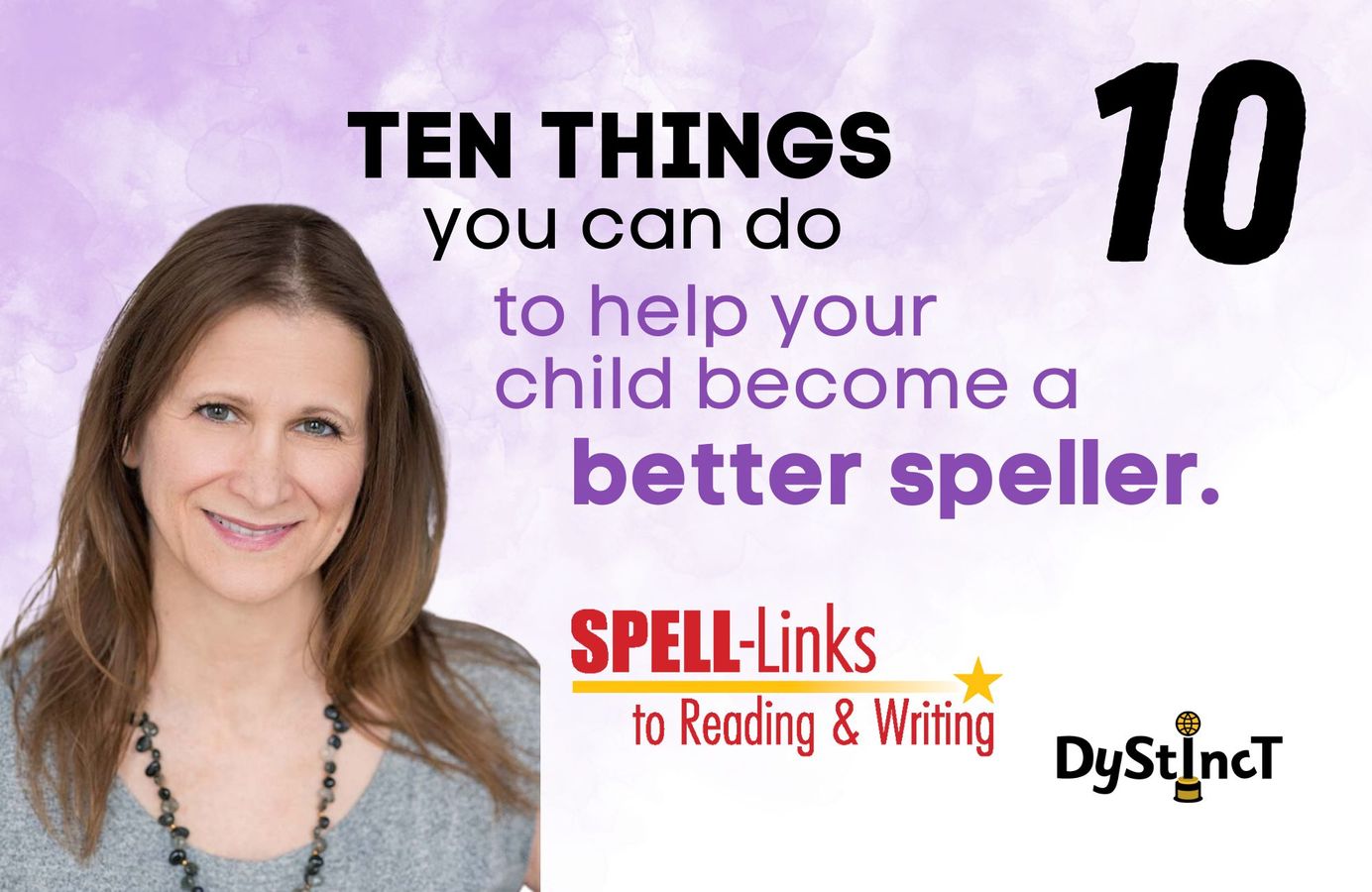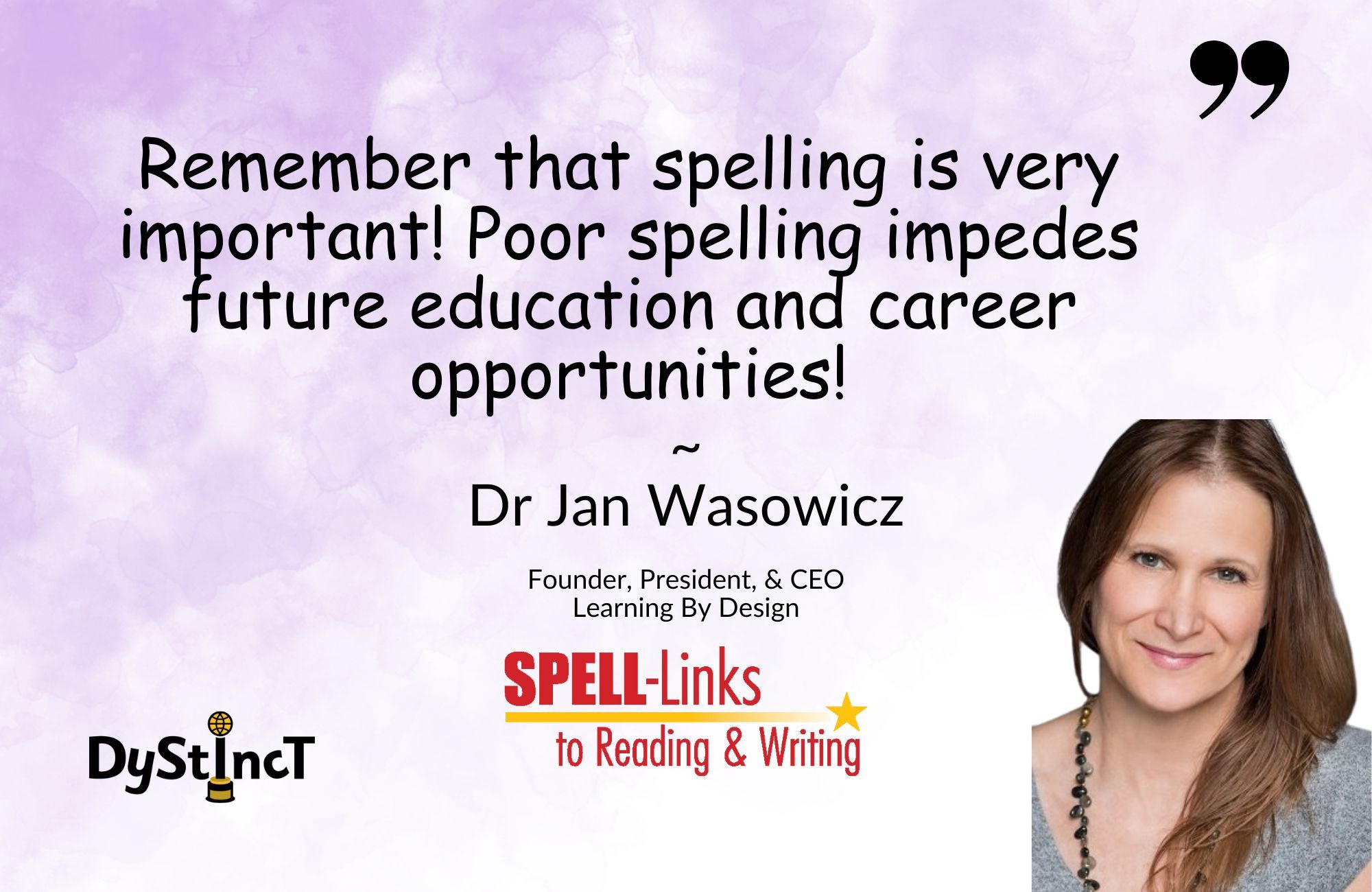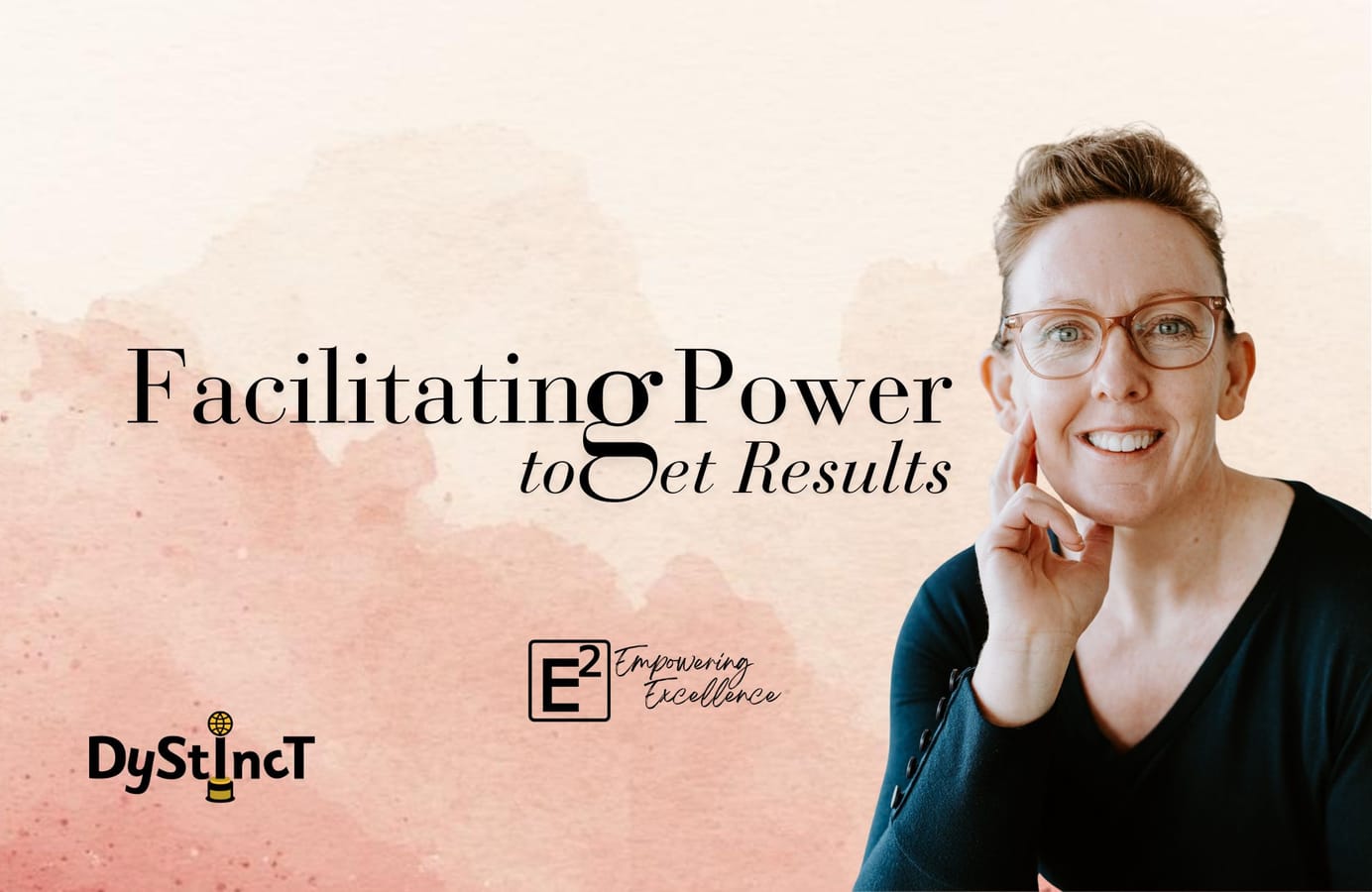
Ten tips for parents to help their children become better spellers | Dr Jan Wasowicz
Dr Jan Wasowicz provides some helpful tips for parents to help children on the path to word study success!
Here are some helpful tips that will help set your child on the path to word study success!
- When reading to your child, point out patterns that occur across words: “Look! The letters ‘ss’ at the end of ‘mess’ and ‘dress’ make one sound—/ s /.” Encourage your child to look for other words with the same pattern.
- When your child asks you how to spell a word, don’t automatically spell it for her. Ask her to think about the sounds in the word, the letter patterns of other words that are similar, and the meaning of the word.
- When your child brings home his weekly spelling list, ask him to look for patterns across words and group words together according to the same pattern; we don’t want him to think that words can only be memorized.
- Encourage your child’s teacher to teach her students to think about the sounds, patterns, and meanings that dictate why words are spelled the way they are.
- If your child is stuck on how to spell a word, start by asking him to think about each sound he hears in the word and putting at least one letter for each sound; make sure he writes the letters at the exact same time he says the corresponding sounds.
- Point out that words that are related by meaning often use the same base or root: “Hey! Magician and magic have similar meanings. I see the word ‘magic’ in ‘magician’ even though I don’t hear it in there.”
- When your child needs to spell a long word, encourage her to think of smaller chunks within the word that have meaning: “Comfortable. Well, I know how to spell comfort and I know that able is often spelled as a-b-l-e. Let’s try that.”
- When you are helping your child learn to spell a word, associate with a word he already knows how to spell: “How do you spell broach? Well, it rhymes with or sounds a lot like coach. Use coach to help you spell broach.”
- When spelling a word, encourage your child to say the individual sounds – not the letter names – as she writes the corresponding letters; we say sounds and we write letters.
- Don’t dismiss spelling as something that can always be corrected by spellcheckers. That’s simply not the case!
You can always get more involved!
Remember that spelling is very important! Poor spelling impedes future education and career opportunities!
Dr Jan Wasowicz
Founder, President, & CEO | Learning By Design
LearningByDesign.com | Facebook | Twitter | LinkedIn

Dr. Jan Wasowicz, PhD, CCC-SLP, BCS-CL, has more than 40 years of experience as a language, literacy, and learning specialist. She has worked with students who have language-based reading, writing, and spelling problems in a variety of educational settings, including public schools and private practice.
Dr. Wasowicz is frequently invited to speak about best practices in literacy assessment and instruction at national, state, and local meetings and has taught numerous undergraduate and graduate courses, holding faculty positions at Northwestern University, Elmhurst College, Rush–Presbyterian–St. Luke’s Medical Center, and Governors State University.
She has authored articles appearing in scholarly journals, is the inventor of the original Earobics® software, and is an author of all SPELL-Links products and is the lead moderator of the esteemed SPELLTalk multi-disciplinary professional listserv. Throughout her career she has received numerous awards and patents in recognition of her pioneering work and her contributions to the fields of education, language, learning, and literacy.
Dr. Wasowicz is an ASHA-certified, IL-licensed and FL-licensed speech-language pathologist and an ASHA Board Certified Specialist in Child Language and she holds a professional educator license with multiple endorsements from the State Teacher Certification Board of Illinois. She maintains a private practice in IL via tele-practice and in FL serving students with oral and written language disorders.



